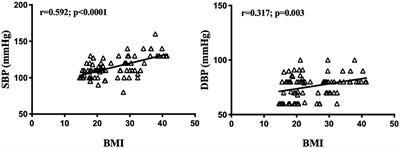EDITORIAL
Published on 12 Apr 2022
Editorial: Challenges for Obesity in the 21st Century: Psychology, Nutrition, Modern Lifestyle Behavior and Neuroendocrine Responses
doi 10.3389/fnut.2022.887272
- 1,535 views
- 1 citation
6,562
Total downloads
34k
Total views and downloads
Select the journal/section where you want your idea to be submitted:
EDITORIAL
Published on 12 Apr 2022
REVIEW
Published on 21 Sep 2021

ORIGINAL RESEARCH
Published on 12 May 2021

ORIGINAL RESEARCH
Published on 18 Feb 2021

ORIGINAL RESEARCH
Published on 12 Feb 2021


Frontiers in Endocrinology
Frontiers in Neuroscience
Frontiers in Psychology